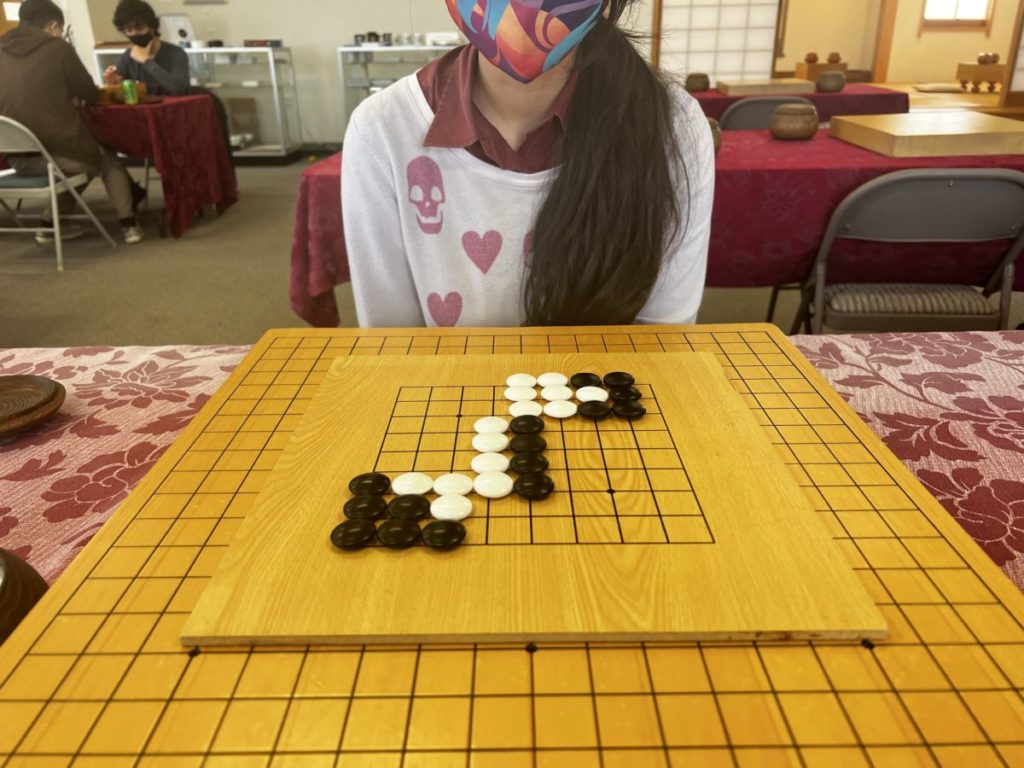Is a Seattle winter not your thing? Or perhaps, you’re searching for a new indoor activity. Seattle Go Center might be your new love affair.

Established in 1995, Seattle Go Center, or formally known as Nihon Ki-in Go institute of the West, is the first Go center in North America. The Nihon Ki-in (The Japanese Go association) and one of Go’s most notable players, Kaoru Iwamoto, funded the Go center in hopes of preserving and fostering the culture of Go across the globe.
Situated at 700 NE 45th St., right at the edge of the University District, the Go center boasts a Tatami style game room next to a more spacious American style game room. The center caters to all ages every Tuesday from 3 to 9 p.m. and Saturdays from 1 to 6 p.m. The first 10 visits of each day are free, after that, it’s $35 for 10 visits.
“It originated in China but was refined in Japan,” Go player, Cassandra McGuire, explained during a tour along with her husband and Seattle Go Center’s former operation manager, Derek McGuire, as they walked me through the history of the 4000-year-old game.
Played by two players, the game consists of a 19-by-19 board, with pieces of 180 black stones and 181 white stones. The goal of the game is to capture the most liberties (territory). The player with the most number of liberties captured wins the game. While typically played in person, the game can now be played online.

“A lot of the players [at Seattle Go Center] are programmers,” Cassandra McGuire said when asked about the typical patrons of the game, “it became interesting to programmers because, for a long time, computers couldn’t beat professional players. [Meanwhile for] chess, computers were already defeating players in the ‘80s with very sophisticated machines.” But with the advancement in technology back in 2016, the fate of Go was forever changed. Google DeepMind Challenge Match, also known as the “AlphaGo versus Lee Sedol”, was the first time in history where artificial intelligence (A. I.) was able to beat a professional Go player.
At first, it bummed players out that A.I. finally won over Go players, but now Go players are using this same technology to their advantage: “Now people can put those programs on their phones or computer,” Derek McGuire explains. Players now use this software to identify better moves, “the strongest players are getting stronger,” he adds.
The Atomic Bomb game

Throughout the years, there have been many Go matches that have become iconic; they’ve even earned their own names, including Seattle Go Center’s Iwamoto.
A match between Utaro Hashimoto and Iwamoto; the game took place right outside of Hiroshima, Japan. On the second day out of three, they were setting up the board to pick up where they had left off from the previous day. Before they sat down to start playing, the atomic bomb, Little Boy, was dropped over Hiroshima. Luckily, they were far enough from the explosion not to receive any serious injury. The game continued after a lunch break with Hashimoto (white) winning by 5 points. Because of this, Derek McGuire stated that Iwamoto’s goal became spreading the game around the world: “Go was a way to have a more peaceful world.”
Is it a sport?

“You can call it a sport,” Cassandra McGuire said, but she and her husband made it clear that in Go, winning is not always the goal. “There is this coexistence, that is a very zen philosophy, that you have to share space with your opponent. You just don’t get to annihilate them, and if you try to do that, they can take advantage of you being greedy,’ added Cassandra McGuire. “You can’t win the game well by just killing and attacking all the time,” Derek McGuire emphasizes. The game is more about playing together than against, ”In Go, there is a much more emphasis on basically playing well and creating something together.”
Go might pose itself as a simple game. If played simply, it can be compared to a game of tic-tac-toe, but taking it to another level, some Go matches could go on for days, and in some cases, more than a week.

Don’t know how to play? You still should go
If you don’t know how to play the game, don’t worry, Seattle Go Center’s community of players is very welcoming to new players. In fact, I was able to play a match with some of the players there after a couple of lessons from Derek McGuire (although I lost both of my matches).

Yuan Tao goes to the Seattle Go center to keep in touch with her Chinese heritage: “I feel really lucky to have such a great one [Go Center] in Seattle,” but Go is not exclusive to cultural practices. It can honestly just be about detaching from your regular life, sitting down, enjoying a nice match of Go, and finding a community that fosters peace and history.
Author

Juan Miguel Jocom, or Juanita Banana as his friends call him, is an Editorial Board member at the Seattle Collegian, where he focuses on writing about the experience of immigrant students at Seattle Central College. A documentarian, he hopes to create videos that will showcase the chaos and glory of humans.
As a Seattle local, he’s an aspiring granola boy, who enjoys rock climbing and jumping off cliffs. His recent documentary, Welcome to the Neighborhood, was an official selected entry for the 2021 SCOOP film fest.











Be First to Comment